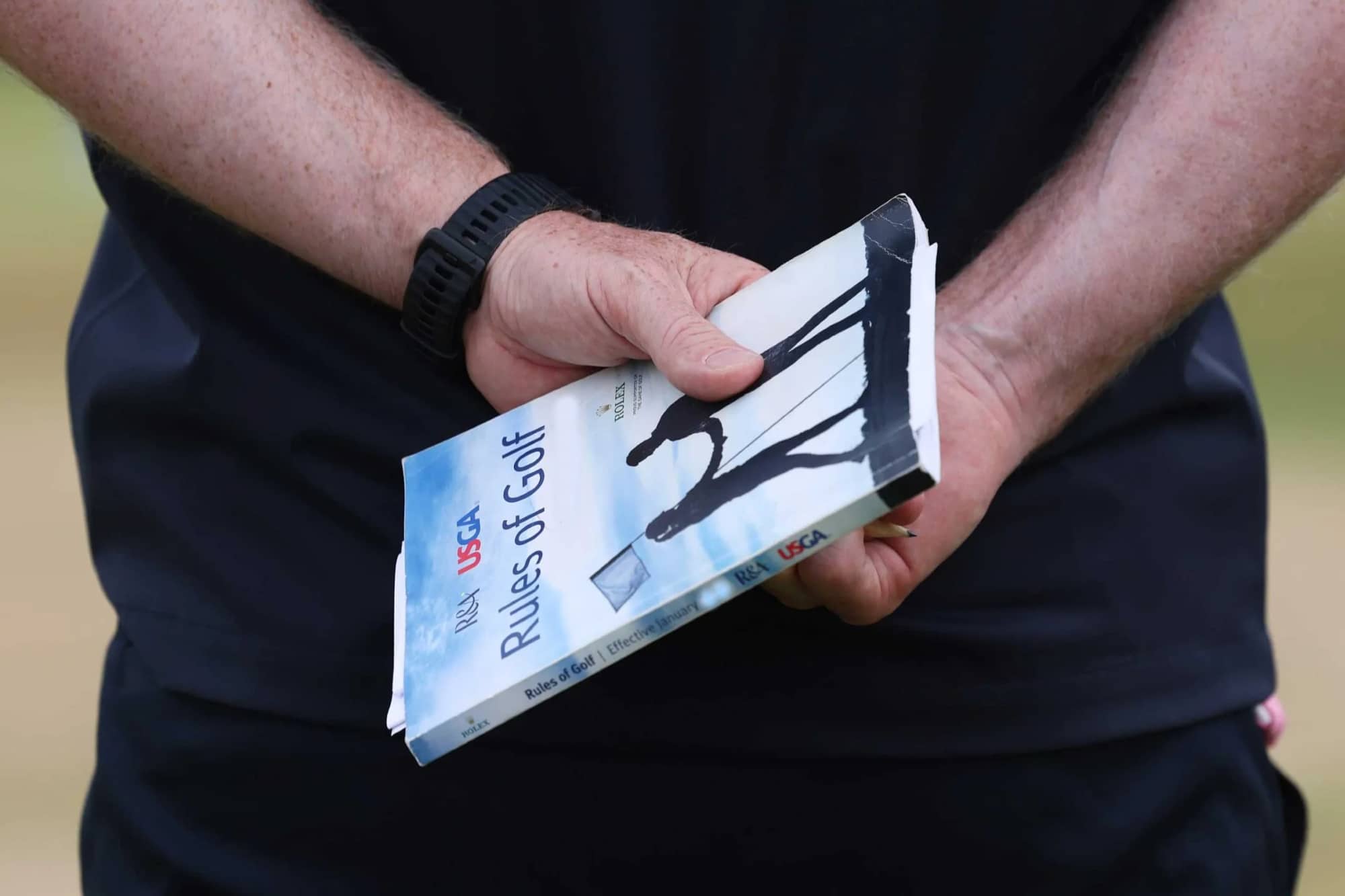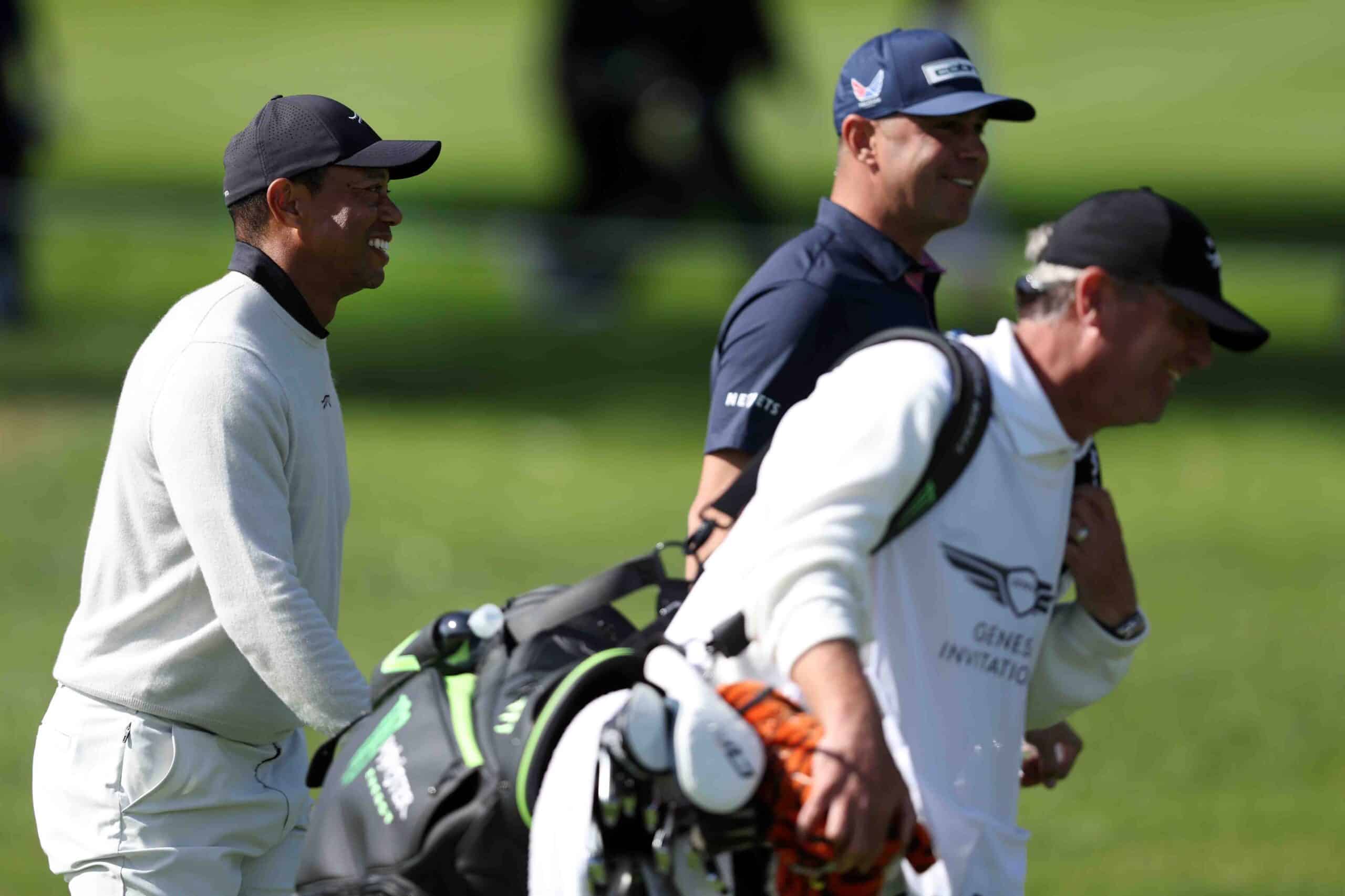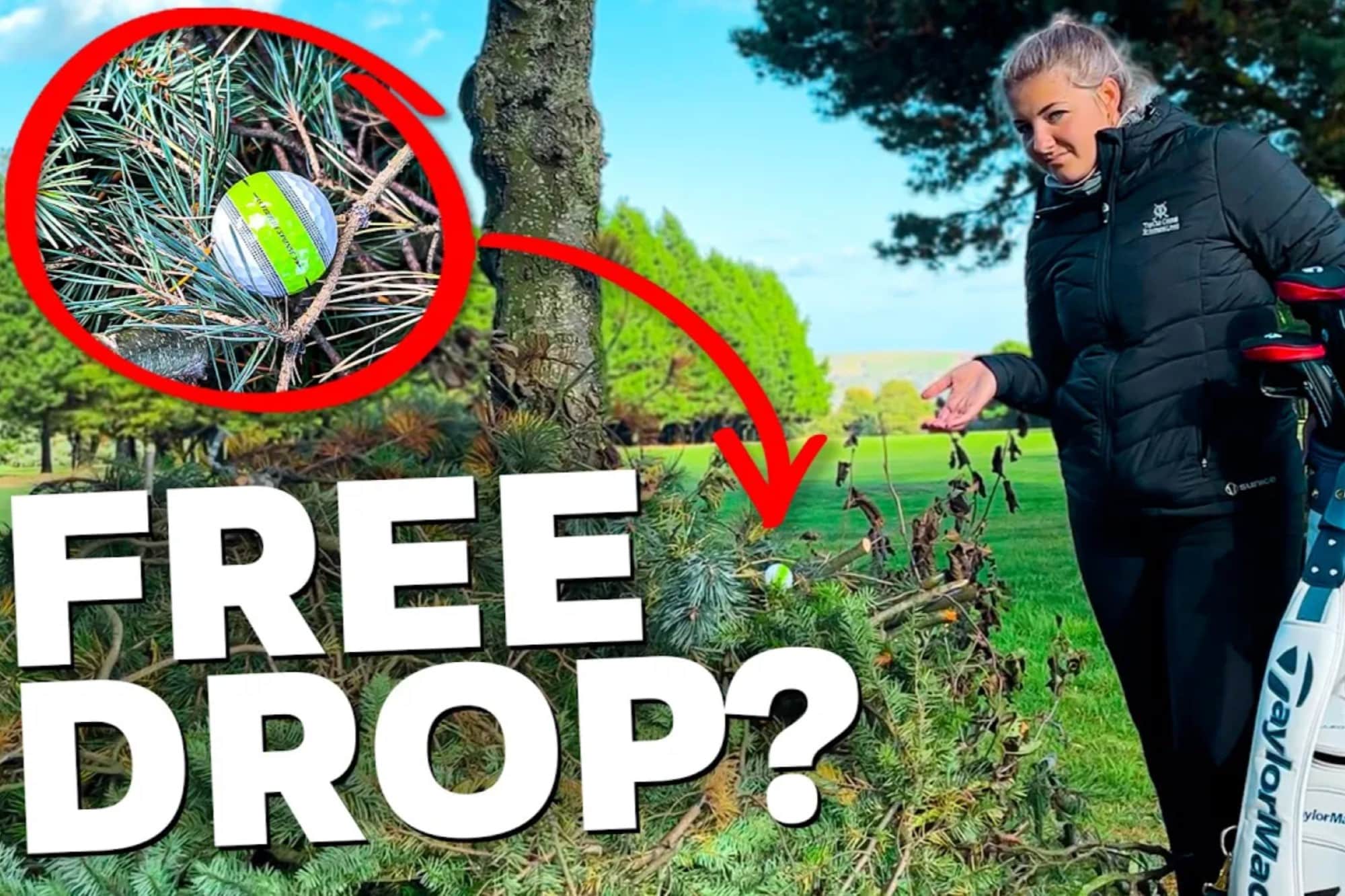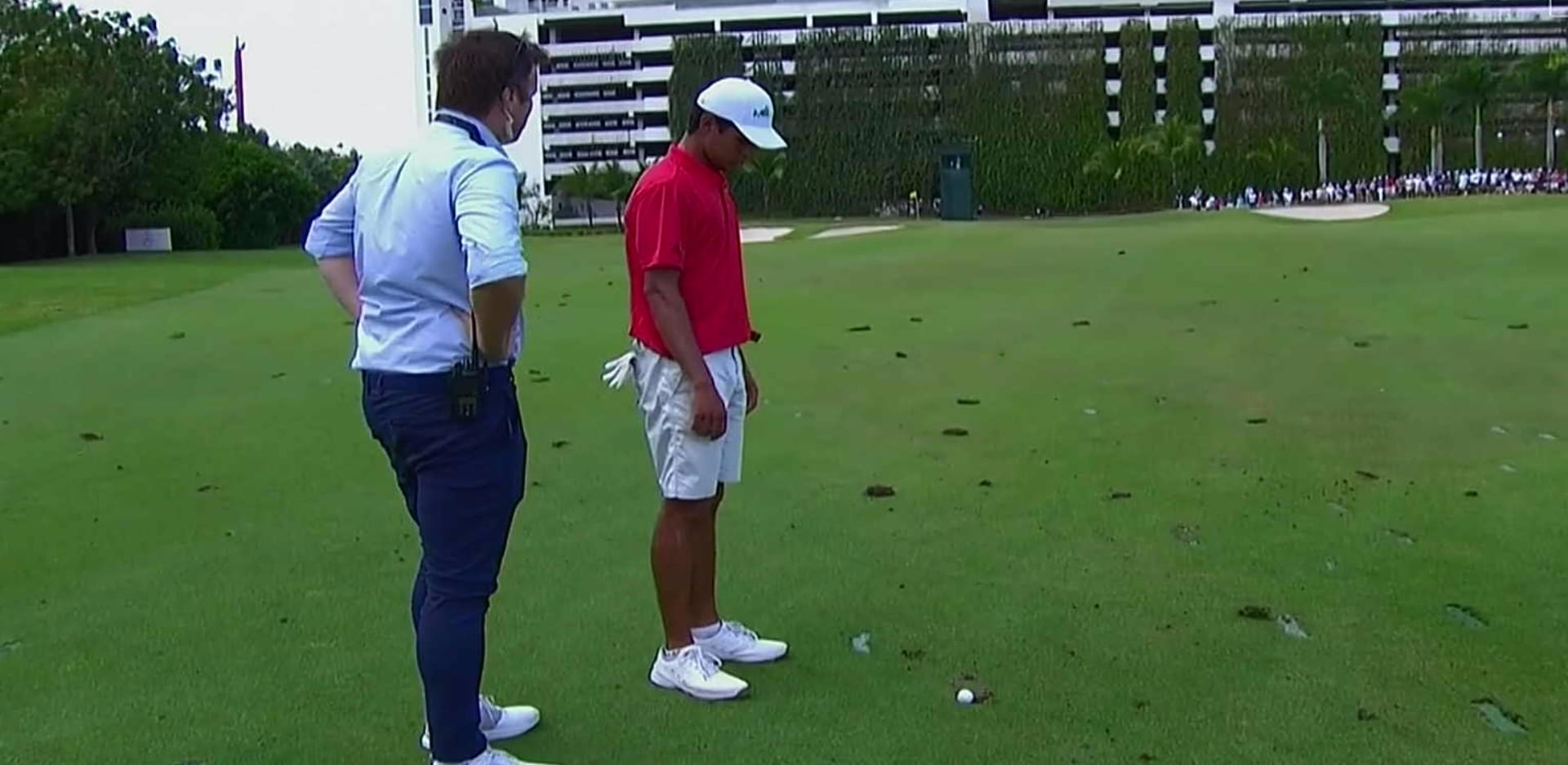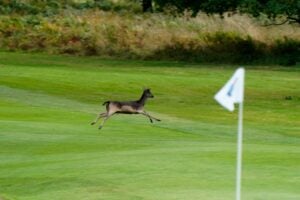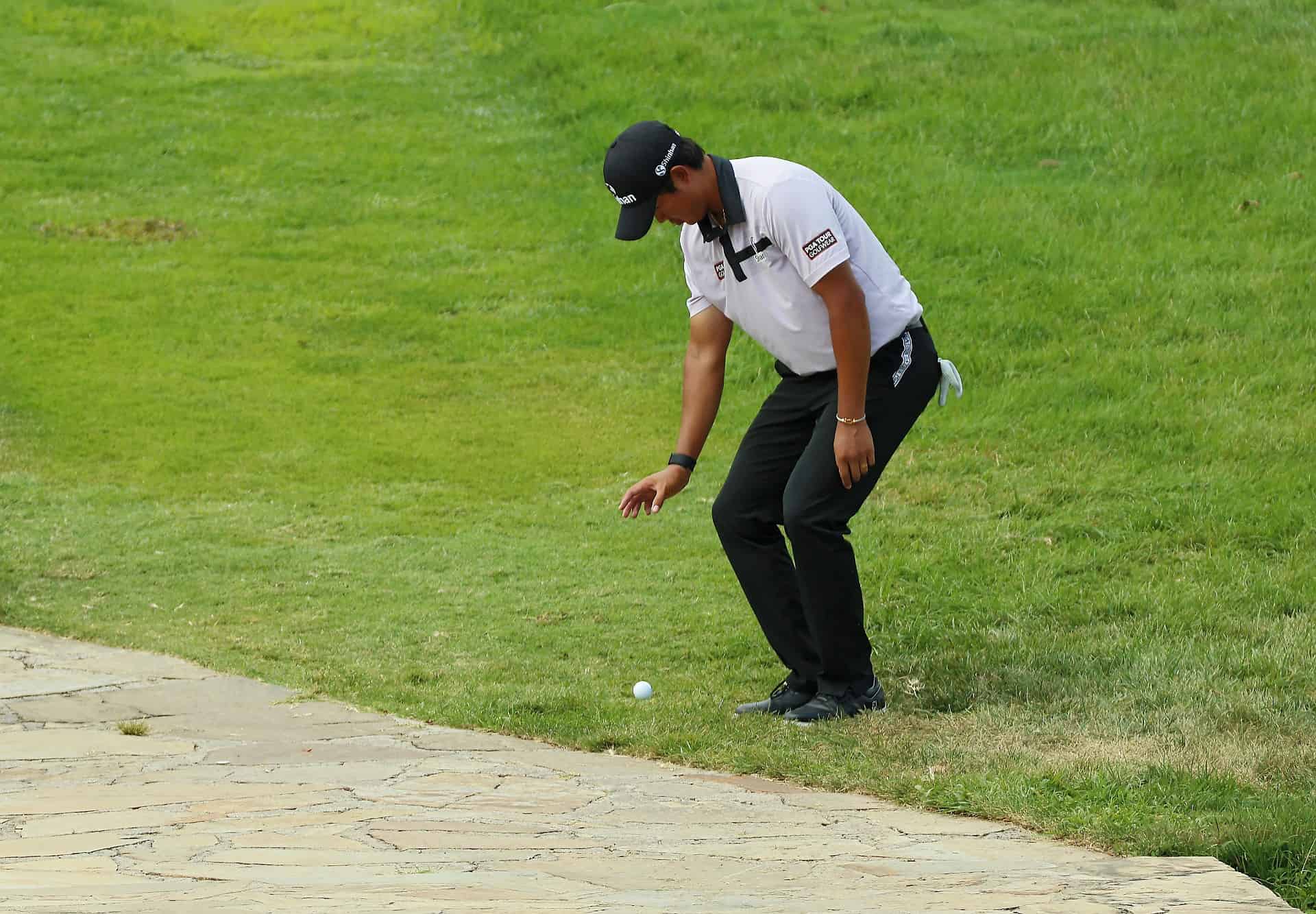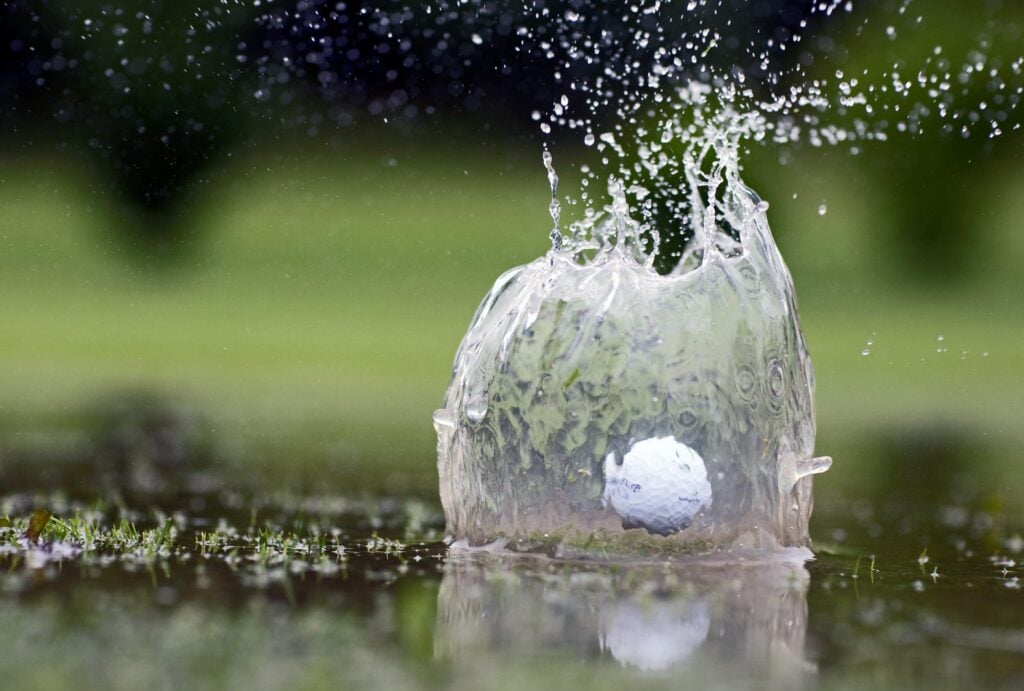
What does ‘known or virtually certain’ mean?
The combination of a tough shot heading towards a blind penalty area always makes me wince as a referee. It’s because you might need to have a difficult conversation with a golfer who’s desperately trying to convince you their ball is in there – but they can’t be sure.
It’s all down to ‘known or virtually certain’. When you are deciding what’s happened to your ball – whether it has come to rest in a penalty area, an abnormal course condition, or whether it’s moved – this is the standard you must use.
Lots of us get it wrong. So let’s get to grips with this really important concept and see if we can save your some frustration out on the course…
What is ‘known or virtually certain’?
“More than just possible or probable”, says the lengthy definition in the Rules of Golf. It means there is either “conclusive evidence that the event in question happened to the player’s ball” or “although there is a very small degree of doubt, all reasonably available information shows that it is at least 95% likely” that it happened.
Let’s try and break those two things down a bit further. What is conclusive evidence? If you’ve seen your ball go into a penalty area, or witnesses have seen it happen (such as your playing partners, another group on the course, or spectators) then that would count.
If you’re looking for “reasonably available information”, then that is defined as anything you already know, or can get with “reasonable effort and without reasonable delay”.
But what if you only believe your ball is in a penalty area, and you convince yourself that it “couldn’t possibly be anywhere else”? Well, that’s not known or virtually certain.
Known or virtually certain and the three-minute search time
Variations of this scenario come up quite a lot but they generally involve the same premise. There are examples in a clarification to the definition of known or virtually certain that considers balls that might be in animal holes and balls players think were taken by spectators or other golfers but don’t have enough evidence to know this for certain. They all involve the same result.
There was a search for a ball, the three-minute search time expired, and then the ball was found.
In these cases, known or virtually certain has to “be based on evidence known to the player at the time the three-minute search time expires”.
How does it work with a ball that moves?
Rule 9.2 says that in order to treat a ball as moved it must be known or virtually certain that it has. How do we determine this?
There’s another clarification that gives some advice. It comes down, again, to considering the available information, some of which includes:
– Any actions that have been taken near the ball
– The time that has passed between those and the ball moving
– The lie of the ball before it moved
– Was it windy? Was it raining? What were the weather conditions?
What if I find out someone has played my ball after three minutes?
Many of us will have experienced this and, while we might believe the result is unfair, here are the reasons behind it.
A third clarification gives the example of two players who hit it into the same area of the course. The first player finds a ball and hits it. The second can’t find theirs and the three-minute search time runs out.
As the second player returns to the tee, they find the first player’s ball and realise that their ball has been played in error.
Whatever you might think is fair, the second player’s ball is still lost – even though it was played by the first player.
They have to put another ball into play under stroke and distance. Why? It’s because when the three-minutes ran out, it was not known or virtually certain that the ball had been played by the first player.
They don’t get off scot free, though. For playing a wrong ball, they receive the general penalty (two shots or loss of hole in match play) and must then play their own ball.
Have a question for our Rules of Golf expert?
Despite the simplification of the Rules of Golf at the beginning of 2019, there are still some that leave us scratching our heads. And as I’ve passed the R&A’s Level 3 rules exam with distinction, I’ll try to help as much as possible. If there’s a subject, you’d like me to get into, why not tweet me? You can also look up our weekly Rules of Golf explained column.
Steve Carroll

A journalist for 25 years, Steve has been immersed in club golf for almost as long. A former club captain, he has passed the Level 3 Rules of Golf exam with distinction having attended the R&A's prestigious Tournament Administrators and Referees Seminar.
Steve has officiated at a host of high-profile tournaments, including Open Regional Qualifying, PGA Fourball Championship, English Men's Senior Amateur, and the North of England Amateur Championship. In 2023, he made his international debut as part of the team that refereed England vs Switzerland U16 girls.
A part of NCG's Top 100s panel, Steve has a particular love of links golf and is frantically trying to restore his single-figure handicap. He currently floats at around 11.
Steve plays at Close House, in Newcastle, and York GC, where he is a member of the club's matches and competitions committee and referees the annual 36-hole scratch York Rose Bowl.
Having studied history at Newcastle University, he became a journalist having passed his NTCJ exams at Darlington College of Technology.
What's in Steve's bag: TaylorMade Stealth 2 driver, 3-wood, and hybrids; TaylorMade Stealth 2 irons; TaylorMade Hi-Toe, Ping ChipR, Sik Putter.


